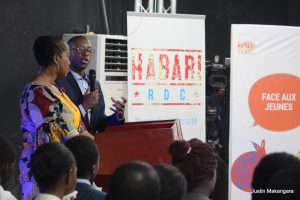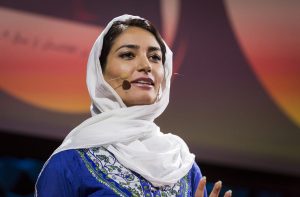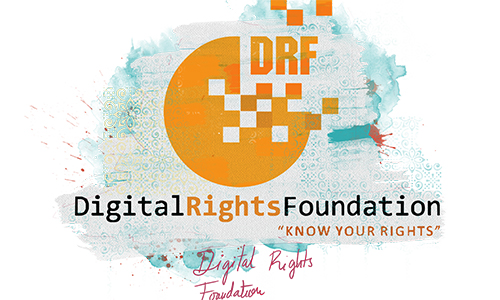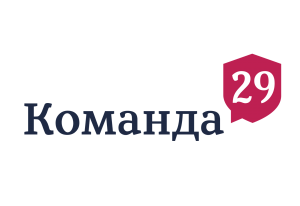Index relies entirely on the support of donors and readers to do its work.
Help us keep amplifying censored voices today.
[vc_row][vc_column][vc_video link=”https://youtu.be/qqxJndjCWmg”][vc_column_text]
Launched in 2016, Habari RDC is a collective of more than 100 young Congolese bloggers and web activists, who use Facebook, Twitter and YouTube to give voice to the opinions of young people from all over the Democratic Republic of Congo.
The aim of these citizen bloggers is to bear witness to what is happening in every corner of the country, which is plagued by extreme poverty, corruption, and violence.
Congo has been racked by civil war for the last 20 years. According to the International Red Cross, Congo had almost a million new displacements in 2016 because of conflict and armed attacks — the highest in the world.
The population is also overwhelmingly young. Some 64% of the population in Congo are under 24 and 42.2% under 14. Average life expectancy for men is 47 and 51 for women. The country also receives little international coverage. Newspapers within the country are controlled by political factions, and up until now, radio has been the most reliable source of information.
Against this background, Habari RDC is an incredibly ambitious project led by young, digitally savvy and opinionated Congolese men and women with a belief in free expression and non-violence. For the last year, they have been using the internet and all the technology at their disposal to talk about what their country is really like and how they would like it to be.
“We want to create a society in which young people are tolerant of each other. In which young people are not manipulated by politicians for their personal interests, because young people represent hope for the country. In our societies, young people are unfortunately used and set against each other to serve egotistical old people.We fight for human rights and the participation of young people in the running of the country. We dream of a young president who will work for the country and not a young egoist.” Habari creators told Index.
The site posts stories and cartoons about politics, but it also covers football, the arts and subjects such as domestic violence, child exploitation, the female orgasm, and sexual harassment at work. It is funny, angry, modern: a collection of irreverent, young distinctive Congolese voices, demanding to be heard in the world.

Habari has grown and expanded into an established blogging site and source of activism during 2017, covering a wide range of social and political issues. One of its achievements was encouraging voter registration in Walikale Territory where, in the past, not only has registration been low, but people have disappeared from the register. This eastern part of the country is also very cut off. Habari wrote an article about this on their blogging site and as a result, they reported, a local MP put pressure on the government. In the end, according to Habari, 290,000 people there were registered to vote, including 140,000 women. They also help individuals – for instance raising the plight of a woman who was raped and rejected by her family. And have reported on the suppression of the internet; and the use of road taxes to arm militias.
On their nomination for the Index Awards, Habari creators said, “This award represents for us two things at once: the great honor of a recognition of the work of 100 young Congolese bloggers from 100 different corners of the DRC who want to change the living conditions of their peers by raising their voices thanks to internet . But this award is also a challenge to do more.”
See the full shortlist for Index on Censorship’s Freedom of Expression Awards 2018 here.[/vc_column_text][/vc_column][/vc_row][vc_row full_width=”stretch_row_content” equal_height=”yes” el_class=”text_white” css=”.vc_custom_1490258749071{background-color: #cb3000 !important;}”][vc_column width=”1/2″][vc_custom_heading text=”Support the Index Fellowship.” font_container=”tag:p|font_size:28|text_align:center” use_theme_fonts=”yes” link=”url:https%3A%2F%2Fwww.indexoncensorship.org%2Fsupport-the-freedom-of-expression-awards%2F|||”][vc_column_text]
By donating to the Freedom of Expression Awards you help us support
individuals and groups at the forefront of tackling censorship.
[/vc_column_text][/vc_column][vc_column width=”1/2″ css=”.vc_custom_1521479845471{background-image: url(https://www.indexoncensorship.org/wp-content/uploads/2017/05/2017-awards-fellows-1460×490-2_revised.jpg?id=90090) !important;background-position: center !important;background-repeat: no-repeat !important;background-size: cover !important;}”][/vc_column][/vc_row][vc_row][vc_column][vc_basic_grid post_type=”post” max_items=”4″ element_width=”6″ grid_id=”vc_gid:1522917883563-1453e0af-5b06-2″ taxonomies=”10735″][/vc_column][/vc_row]
[vc_row][vc_column][vc_video link=”https://youtu.be/Ev3C9EZqY48″][vc_column_text]Fereshteh Forough is the founder and executive director of Code to Inspire, which opened its first coding school for girls in Afghanistan in November 2015, and aims to address the low levels of female education and paltry levels of economic participation by women in the labour market. 
This is a widely recognised innovative project that helps women and girls learn computer programming. The aim is to tap into the commercial opportunities offered by the online world to liberate women in Afghanistan and offer them economic independence.
Afghanistan is still a male-dominated country where ordinary women find it difficult even to socialise or trave, let alone work, use technology or be economically independent. Women are also discouraged from working where men are present and experience sexual harassment if they do.
Forough believes that with programming skills, an internet connection and using bitcoin for currency, women in Afghanistan can be independent, transform their society and create wealth and economic opportunity.
“Some of the girls had never touched a computer, been online – nothing,” said Forough. “Today, they are able to create web pages and a some are now going out and talking to women-based companies and offering their expertise to them, to help them create websites. This is a real act of resistance in a country where women are still being pushed back for accessing the internet and computers.”
Only 21% of Afghan women receive secondary education according to a UNICEF study and in Afghanistan there is only a 16% female participation in the labour market.
Afghanistan is still economically and politically unstable and parts of it are dangerous and violence-prone, which presents many hurdles to entrepreneurs who want to drive change like Forough, and the women and girls she teaches and helps get jobs.
However Forough is used to challenges. She herself was a refugee. Born to Afghan parents in Iran, she returned to Afghanistan after the fall of the Taliban, and took a position teaching computer sciences at Herat University after studying for a Masters in Germany.

Forough has received support from abroad for Code to Inspire, particularly from the USA with Google, GitHub, but she is still working on a relatively small scale. She needs more support to expand and build her vision round the country franchising the model to other larger cities such as Mazar-e Sharif and Kabul. Forough also wants to organise the first Afghan women hackathon at a national level.
Forough was a 2013 TED Talks speaker and took part in the 2015 Clinton Global Initiative.
In 2017, Code to Inspire enrolled about 20 girls for new graphic and design classes, and later on in the year another group of 60 girls took classes in unity (a gaming software), mobile applications and full stack development.
“It doesn’t matter where you are or what you are, what you have or don’t have,” said Forough. “You should never be afraid to do what you believe in and that’s what Index of Censorship Award means to me, to raise my voice and share my story freely”.
See the full shortlist for Index on Censorship’s Freedom of Expression Awards 2018 here.[/vc_column_text][/vc_column][/vc_row][vc_row full_width=”stretch_row_content” equal_height=”yes” el_class=”text_white” css=”.vc_custom_1490258749071{background-color: #cb3000 !important;}”][vc_column width=”1/2″][vc_custom_heading text=”Support the Index Fellowship.” font_container=”tag:p|font_size:28|text_align:center” use_theme_fonts=”yes” link=”url:https%3A%2F%2Fwww.indexoncensorship.org%2Fsupport-the-freedom-of-expression-awards%2F|||”][vc_column_text]
By donating to the Freedom of Expression Awards you help us support
individuals and groups at the forefront of tackling censorship.
[/vc_column_text][/vc_column][vc_column width=”1/2″ css=”.vc_custom_1521479845471{background-image: url(https://www.indexoncensorship.org/wp-content/uploads/2017/05/2017-awards-fellows-1460×490-2_revised.jpg?id=90090) !important;background-position: center !important;background-repeat: no-repeat !important;background-size: cover !important;}”][/vc_column][/vc_row][vc_row][vc_column][vc_basic_grid post_type=”post” max_items=”4″ element_width=”6″ grid_id=”vc_gid:1523376151785-23b6414e-add3-5″ taxonomies=”10735″][/vc_column][/vc_row]
[vc_row][vc_column][vc_video link=”https://youtu.be/1Tgkm4m3W7c”][vc_column_text]The Digital Rights Foundation based in Pakistan have been nominated for its work on a cyber-harassment helpline which was set up a year ago and has supported more than a thousand women.
It is the first service of its kind in Pakistan and helps women report cyber-harassment regardless of where they live in the country. The helpline is important because it is an innovative and practical way of challenging women’s exclusion from online spaces and bolstering women’s rights to freedom of expression.
DRF was founded by digital rights activist Nighat Dad. As well as the helpline, the organisation provides training for women in online harassment, carries out advocacy work for a safe internet and raises awareness of digital security and censorship issues.
“Digital Rights Foundation envisions a place where all people, and especially women, are able to exercise their right of expression without being threatened,” said DRF. “We believe that free internet with access to information and impeccable privacy policies can encourage such a healthy and productive environment that would eventually help not only women, but the world at large”.
The impetus behind the helpline was the murder last summer of the Pakistani social media celebrity Qandeel Baloch who had a million followers and lived in a small provincial town in Punjab.
She was killed by her brother for her sexually confident posts on Facebook, posts which would be normal in Western countries. In small town conservative Pakistani society, dominated by religious leaders they caused outrage.
While Baloch’s was an extreme case, women online – who make up only 20 to 25% of the online population – routinely face bullying including revenge porn, blackmail, impersonation, non-consensual usage of personal information, privacy violations and other kinds of harassment. Women are afraid to report how badly they are treated and so react by withdrawing from online spaces.
This silencing of female voices and the exclusion of women from social media and other sites, which mirrors the exclusion of women from public spaces and public life generally in Pakistan, is a significant threat to freedom of expression.
 The support team includes a qualified psychologist, digital security expert, and trained lawyer, all of whom provide specialised assistance. The helpline helps women, children, human rights defenders, minority communities and anyone who might feel unsafe in digital spaces. It receives around 80 calls a month, and 60% of the requests for help are from women. Quite a few are also from men seeking advice on behalf of women.
The support team includes a qualified psychologist, digital security expert, and trained lawyer, all of whom provide specialised assistance. The helpline helps women, children, human rights defenders, minority communities and anyone who might feel unsafe in digital spaces. It receives around 80 calls a month, and 60% of the requests for help are from women. Quite a few are also from men seeking advice on behalf of women.
Staff ensure victims can make official reports of harassment to the authorities. As law enforcement offices where victims can file a complaint are only located in provincial capitals, it can be extremely difficult for victims in more remote parts of the country to initiate an investigation. To address this, the helpline has its own legal officer who can pursue cases on behalf of victims.
The helpline team produce reports every six months, which include an analysis of the kind of issues callers ring in about, and recommendations for action by Pakistani institutions responsible for online safety to make sure that women’s voices are heard.
“We at Digital Rights Foundation are honoured to be nominated for the Index on Censorship Freedom of Expression Awards.” said DRF. “The recognition means a great deal to us especially given the shrinking spaces for activists both online and offline. The Award will go a long way in lending legitimacy to our work and will amplify our dissent in favour of a free and safe internet”.
See the full shortlist for Index on Censorship’s Freedom of Expression Awards 2018 here.[/vc_column_text][/vc_column][/vc_row][vc_row full_width=”stretch_row_content” equal_height=”yes” el_class=”text_white” css=”.vc_custom_1490258749071{background-color: #cb3000 !important;}”][vc_column width=”1/2″][vc_custom_heading text=”Support the Index Fellowship.” font_container=”tag:p|font_size:28|text_align:center” use_theme_fonts=”yes” link=”url:https%3A%2F%2Fwww.indexoncensorship.org%2Fsupport-the-freedom-of-expression-awards%2F|||”][vc_column_text]
By donating to the Freedom of Expression Awards you help us support
individuals and groups at the forefront of tackling censorship.
[/vc_column_text][/vc_column][vc_column width=”1/2″ css=”.vc_custom_1521479845471{background-image: url(https://www.indexoncensorship.org/wp-content/uploads/2017/05/2017-awards-fellows-1460×490-2_revised.jpg?id=90090) !important;background-position: center !important;background-repeat: no-repeat !important;background-size: cover !important;}”][/vc_column][/vc_row][vc_row][vc_column][vc_basic_grid post_type=”post” max_items=”4″ element_width=”6″ grid_id=”vc_gid:1522917764760-5edc93c3-6e5f-7″ taxonomies=”10735″][/vc_column][/vc_row]
[vc_row][vc_column][vc_video link=”https://youtu.be/M6Amr_zAgpc”][vc_column_text]Team 29 is an informal human rights association of lawyers and journalists that defends those targeted by the state for exercising their right to freedom of speech.
Run by prominent human rights lawyer Ivan Pavlov, Team 29 is based in St Petersburg and named after Article 29 of the Russian Constitution on freedom of expression.
“We use court cases not only as an opportunity to restore justice within a specific case, but also as an excuse to attract public attention to the problems of freedom of information in Russia,” said Team 29.
By taking up high profile human rights cases, and writing and disseminating information about them, Team 29 has found a way around some of the restrictions imposed on campaigners.
The legal part of the Team conducts about 50 court cases annually. These are cases of high treason and the disclosure of state secrets of journalists and citizens whose right to freedom of speech is infringed, the refusal of the state to share information, and cases of extremism.
This year, the journalist section of the team set up a website to report on legal cases, explain the background to policies which threaten free speech, give advice, and explain what is happening to human rights in Russia and the different and myriad ways it is under attack.
It is the successor organisation to the Freedom of Information Foundation (FIF), which existed between 2004 and 2014, but which was shut down by the Russian government after it was included in the state register of “foreign agent” non-governmental organisations (NGOs).
The very right of civil society organisations to exist has been cast into doubt in Russia over the past few years and ever tightening restrictions placed on public protest and political dissent, making the work of Team 29 of increasingly vital importance as the space for free expression shrinks in the country. Most human rights organisations based in Russia have been closed down and it is very difficult to campaign.
 Last year, Team 29 lawyers took on the Russian state to find out the fate of Raoul Wallenberg, the Swedish diplomat who saved tens of thousands of Hungarian Jews from the Holocaust, but was captured by Soviet intelligence, placed in the Lubyanka prison and never seen again.
Last year, Team 29 lawyers took on the Russian state to find out the fate of Raoul Wallenberg, the Swedish diplomat who saved tens of thousands of Hungarian Jews from the Holocaust, but was captured by Soviet intelligence, placed in the Lubyanka prison and never seen again.
Journalists of Team 29 have also developed their niche media about state secrecy this year. Journalists of the team conducted their own investigation into the behaviour of Sochi’s “state officials” on the back of the Sevastidi case and are conducting a special project The Seventeenth Year in which they compare 1917 and 2017 in the history of Russia. They want to have videos on their site and develop their human rights campaigning work.
“It is a great honour for the whole Team 29 to be nominated for the Freedom of Expression Awards together with colleagues from Iran, Egypt, and Kenya, who are risk their lives constantly due to their work,” said Team 29. “Several years ago, it seemed not so dangerous to be a human rights defender or activist in Russia. We just didn’t know about a lot of cases of violence towards activists before; however, today we hear more and more news about tortures by the police, people vanishing, or security services’ secret prisons. The more people who know about our work, the better protected we become and the better chance we have to achieve our objectives and to help people whose rights to information access are abused in Russia.”
See the full shortlist for Index on Censorship’s Freedom of Expression Awards 2018 here.[/vc_column_text][/vc_column][/vc_row][vc_row full_width=”stretch_row_content” equal_height=”yes” el_class=”text_white” css=”.vc_custom_1490258749071{background-color: #cb3000 !important;}”][vc_column width=”1/2″][vc_custom_heading text=”Support the Index Fellowship.” font_container=”tag:p|font_size:28|text_align:center” use_theme_fonts=”yes” link=”url:https%3A%2F%2Fwww.indexoncensorship.org%2Fsupport-the-freedom-of-expression-awards%2F|||”][vc_column_text]
By donating to the Freedom of Expression Awards you help us support
individuals and groups at the forefront of tackling censorship.
[/vc_column_text][/vc_column][vc_column width=”1/2″ css=”.vc_custom_1521479845471{background-image: url(https://www.indexoncensorship.org/wp-content/uploads/2017/05/2017-awards-fellows-1460×490-2_revised.jpg?id=90090) !important;background-position: center !important;background-repeat: no-repeat !important;background-size: cover !important;}”][/vc_column][/vc_row][vc_row][vc_column][vc_basic_grid post_type=”post” max_items=”4″ element_width=”6″ grid_id=”vc_gid:1522067531601-cc030204-bc1b-9″ taxonomies=”10735″][/vc_column][/vc_row]